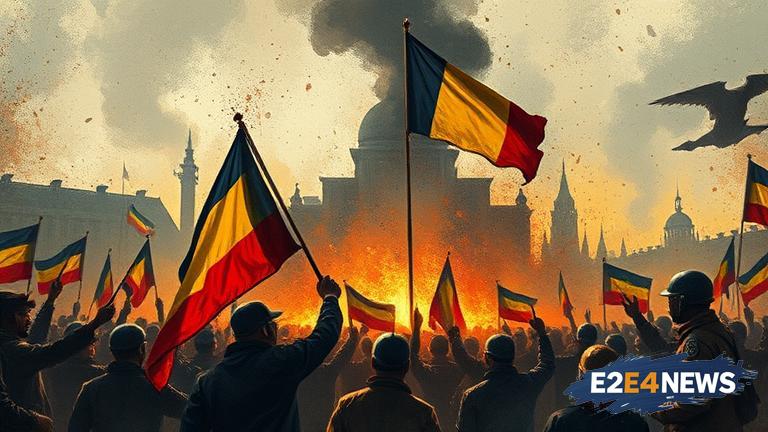The 1989 Romanian Revolution was a pivotal moment in the country’s history, marking the end of communist rule and the beginning of a new era of democracy. Recently, a former CIA analyst has come forward to share new information about the events leading up to and during the revolution. According to the analyst, the CIA had been monitoring the situation in Romania closely, and had predicted that the communist regime would eventually collapse. The analyst also revealed that the CIA had been in contact with opposition groups within Romania, providing them with support and guidance. The revolution itself was a complex and multifaceted event, involving a wide range of individuals and groups. It began with protests and demonstrations in the city of Timisoara, which quickly spread to other parts of the country. The communist government, led by Nicolae Ceausescu, responded with force, but ultimately proved unable to contain the uprising. As the revolution gained momentum, Ceausescu and his wife Elena fled the capital, but were eventually captured and executed. The aftermath of the revolution was marked by a period of uncertainty and upheaval, as Romania struggled to establish a new government and transition to a democratic system. The former CIA analyst’s revelations provide new insight into this period, highlighting the role of external factors in shaping the course of the revolution. The analyst also notes that the CIA’s involvement in the revolution was not limited to providing support to opposition groups, but also included efforts to influence the direction of the new government. Despite the challenges and uncertainties of the time, Romania has made significant progress in the years since the revolution, establishing a stable democratic system and integrating into the European community. However, the legacy of the revolution remains complex and contested, with many questions still unanswered about the events of 1989. The former CIA analyst’s account provides a unique perspective on this period, and highlights the need for further research and investigation into the history of the revolution. The story of Romania’s revolution is a testament to the power of popular movements and the importance of external support in shaping the course of events. It also serves as a reminder of the complexities and challenges of transitioning from a communist to a democratic system. As Romania continues to evolve and grow, it is essential to remember and learn from the lessons of the past. The country’s history serves as a reminder of the importance of democracy, freedom, and human rights, and the need for continued vigilance and activism in defense of these values. In conclusion, the former CIA analyst’s revelations provide a new and important perspective on Romania’s revolution, highlighting the complex interplay of internal and external factors that shaped the course of events. The story of the revolution serves as a powerful reminder of the importance of democracy and human rights, and the need for continued engagement and activism in defense of these values. The legacy of the revolution continues to be felt in Romania today, and its impact will be studied and debated by historians and scholars for years to come. The former CIA analyst’s account is a significant contribution to this ongoing discussion, and provides a unique and valuable insight into the history of the revolution. The story of Romania’s revolution is a complex and multifaceted one, involving a wide range of individuals and groups. It is a testament to the power of popular movements and the importance of external support in shaping the course of events. The revolution marked the end of communist rule in Romania and the beginning of a new era of democracy, and its legacy continues to be felt in the country today. The former CIA analyst’s revelations provide a new and important perspective on this period, and highlight the need for further research and investigation into the history of the revolution. The country’s history serves as a reminder of the importance of democracy, freedom, and human rights, and the need for continued vigilance and activism in defense of these values. The story of Romania’s revolution is an important one, and its impact will be studied and debated by historians and scholars for years to come.
